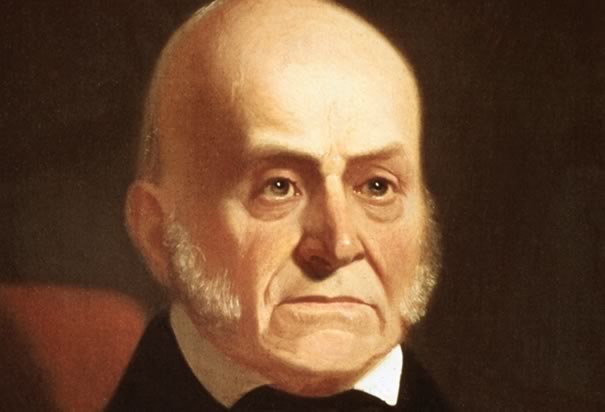Black History Month is a special time to focus on black history, which interestingly often involves not just Black Americans but also those of other races. As famous Black American minister Richard Allen reminded his brethren during the Founding Era, “Many of the white people have been instruments in the hands of God for our good [and] are now pleading our cause with earnestness and zeal.”
John Quincy Adams is one of the many Americans who had a direct hand in shaping black history for the good. (By the way, to learn about many of America’s remarkable untold black heroes, check out our website section on Black History or our book on that subject).
Adams spent nearly seven decades in public service for America, including as a foreign diplomat, Secretary of State, U. S. Senator, President of the United States, and then as the only President to serve as a US Congressman after his Presidency. He became famous for introducing anti-slavery petitions into what was at that time a pro-slavery Congress. In fact, his fellow Congressmen were so disgusted with these petitions that they enacted a “gag-rule” banning the introduction of any petition addressing the abolition of slavery. But Adams persisted and was so relentless in the pursuit of liberty and equality for Black Americans that he became known as “The Hellhound of Abolition.”
Adams also led the legal defense of the African slaves in the famous Amistad case later made a Hollywood movie starring Anthony Hopkins). The Amistad was a Spanish ship carrying newly enslaved Africans, who revolted during the voyage, killed the captain, and took over the boat. The ship was brought to port in the United States, where the Spanish survivors charged the Africans with mutiny and murder. John Quincy Adams successfully defended them before the U. S. Supreme Court, which declared the Africans free. They were later transported safely back to the freedom of their homes in Africa.
John Quincy Adams’ firm position in behalf of the equality of all men, regardless of color, was drawn especially from Bible teachings. In fact, he specifically cited Jesus’ teaching in Luke 4 as an authority for his position against slavery. Not surprisingly, Adams openly stressed the importance of reading the Bible.
In fact, when he had been a diplomat serving under President James Madison, Adams wrote a series of nine letters to his son instructing him on the importance of reading the Bible and how to get the most from his reading. A public demand for these letters led to their 1848 publication as a book for young Americans.
Dinner Table Discussion: What qualities did John Quincy Adams have that kept him from never giving up in his quest to eliminate slavery?

